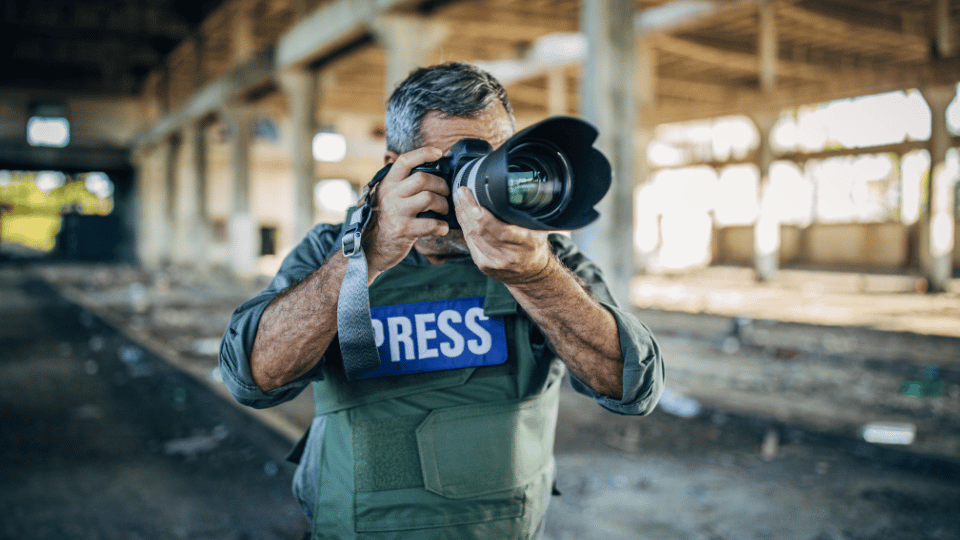Photojournalism is a captivating field that combines the power of visual storytelling with the impact of journalism. Aspiring photojournalists seek to capture and convey powerful narratives through compelling images that resonate with audiences.
In today’s digital age, the demand for skilled photojournalists is on the rise, creating exciting opportunities for individuals looking to pursue a career in this dynamic industry.
One of the key steps in establishing a successful career in photojournalism is acquiring the right education and training. A photojournalism online course can provide aspiring photographers with the skills, knowledge, and practical experience needed to excel in this competitive field.
Whether you are a photography enthusiast looking to transition into photojournalism or a journalism student interested in integrating visual storytelling into your work, an online course focused on photojournalism can offer valuable insights and hands-on training.
Here are some key aspects to consider when exploring a photojournalism online course:
Fundamentals of Photojournalism
A comprehensive photojournalism course covers the fundamentals of visual storytelling, journalistic ethics, and the role of photography in reporting news and events. Students learn how to capture compelling images that convey emotion, context, and information, while adhering to ethical standards and journalistic integrity.
Technical Skills and Equipment
Understanding the technical aspects of photography, including camera settings, composition, lighting, and editing techniques, is essential for aspiring photojournalists. A photojournalism course can provide hands-on training with professional equipment and software, allowing students to develop their technical skills and enhance their creative vision.
Storytelling and Narrative Development
Photojournalism is more than just taking pictures—it’s about telling stories through images. A quality online course will focus on developing students’ storytelling abilities, helping them create visual narratives that engage and inform audiences. From photo essays to multimedia presentations, students learn how to craft impactful stories through their photography.
Ethical and Legal Considerations
As journalists, photojournalists must adhere to ethical guidelines and legal standards when capturing and sharing images. A photojournalism course should cover topics such as privacy rights, consent, copyright laws, and the ethical responsibilities of visual journalists. Understanding these principles is crucial for maintaining credibility and trust in the field.
Industry Insights and Networking Opportunities
An online photojournalism course can provide valuable industry insights, guest lectures from experienced professionals, and networking opportunities with peers and mentors. Building connections within the photojournalism community can open doors to internships, freelance opportunities, and potential career paths in the field.
Portfolio Development and Feedback
Creating a strong portfolio is essential for showcasing your skills and style as a photojournalist. A reputable online course will offer opportunities for students to build their portfolios, receive feedback from instructors and peers, and refine their visual storytelling techniques. A compelling portfolio can help aspiring photojournalists stand out in a competitive job market.
Specialized Training and Elective Courses
Some online photojournalism courses may offer specialized training in areas such as sports photography, documentary photography, conflict reporting, or environmental journalism. Elective courses allow students to explore specific interests within the field of photojournalism and develop expertise in niche areas.
Continued Professional Development
The field of photojournalism is constantly evolving, with new technologies, trends, and storytelling approaches shaping the industry. Aspiring photojournalists should prioritize continuous learning and professional development to stay current and competitive in the field. Online courses, workshops, and industry events can provide valuable opportunities for growth and skill enhancement.
Conclusion
In today’s digital landscape, online learning platforms like Yellowbrick offer comprehensive photojournalism courses that cater to individuals seeking to pursue a career in visual storytelling. By enrolling in a photojournalism online course, aspiring photojournalists can gain the knowledge, skills, and practical experience needed to succeed in this dynamic and rewarding field.
Whether you are a beginner looking to build a strong foundation in photojournalism or an experienced photographer aiming to transition into journalism, investing in a quality online course can be a transformative step towards achieving your career goals.
Key Takeaways:
- A photojournalism online course provides essential skills and knowledge for aspiring photojournalists.
- Focus on fundamentals, technical skills, storytelling, ethics, networking, and portfolio development.
- Specialized training and continuous learning are vital for success in the evolving field of photojournalism.
Consider enrolling in the NYU | Modern Journalism online course for a comprehensive and rewarding learning experience.








